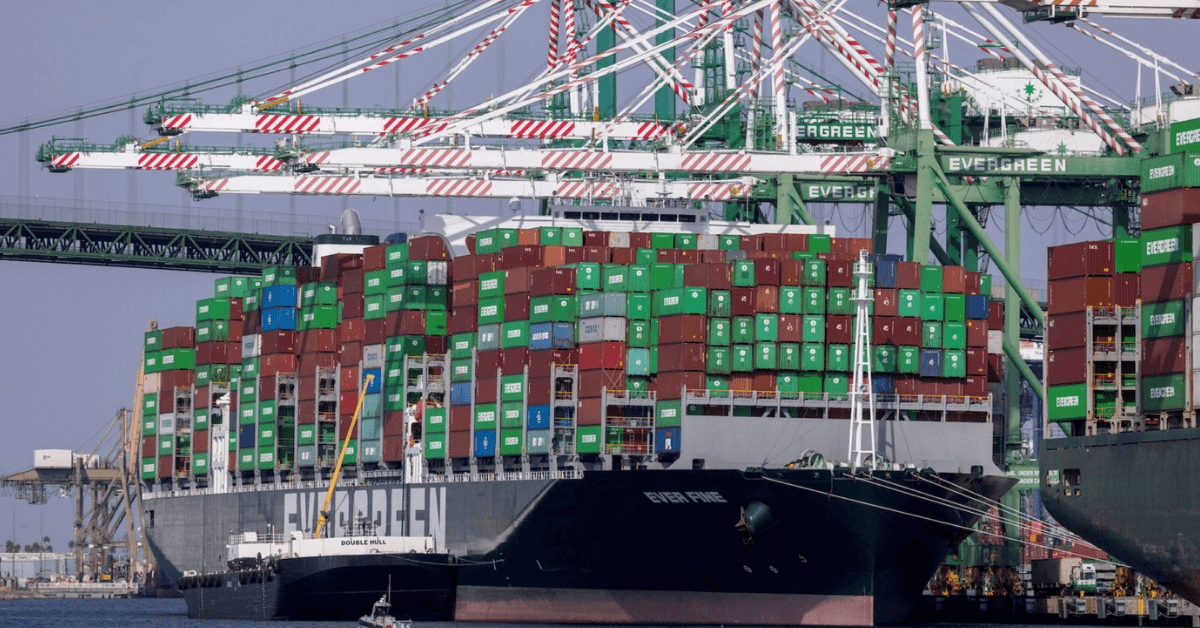In filings to the Taiwan Stock Exchange last night, the Taiwanese liner operator said that its Singapore-registered subsidiary, Evergreen Marine (Asia) has ordered 16 of the ships from Samsung Heavy Industries in South Korea, while the other eight ships will be built by Japan’s Nihon Shipyard.
EMC said that the total contract value ranges from $4.32bn to $5.04bn, working out to $180m to $210m per vessel.
A delivery timeframe was not stated, but it takes two to three years to build ships, meaning deliveries would be between 2025 and 2026.
Prior to the latest orders, EMC had 48 ships of 456,650 teu under construction.
The new orders would take Evergreen’s pipeline to 840,650 teu, paving the way for the Taiwanese carrier to overtake Hapag-Lloyd. Evergreen’s in-service fleet stands at 1.67m teu, including 952,160 teu of owned ships.
In comparison, Hapag-Lloyd’s current fleet totals 1.86m teu, including 1.15m teu that is owned.
The German carrier has 15 ships of 312,304 teu under construction. Assuming Hapag-Lloyd does not order more ships, it will have 2.17m TEU when the newbuildings are delivered, while EMC will have 2.51m teu after its new ships enter service.
EMC general manager Eric Hsieh has said on recent occasions that he is optimistic that demand will recover and tighter environmental regulations will call for slow-steaming.
Alphaliner noted that EMC has been very conservative when it comes to alternative fuels such as LNG or methanol.
Both its in-service fleet and previous orderbook consist entirely of conventionally powered ships.
The latest newbuildings could be deployed to the Asia-Mediterranean or Asia-US East Coast lane.
Last month, EMC took delivery of a similar sized ship, Ever Max, from Samsung HI and assigned it to the AWE2 Asia-US East Coast loop. The entire Mediterranean Sea will become an emission control area from 2025, making methanol-fuelled ships appropriate for deployment there.








